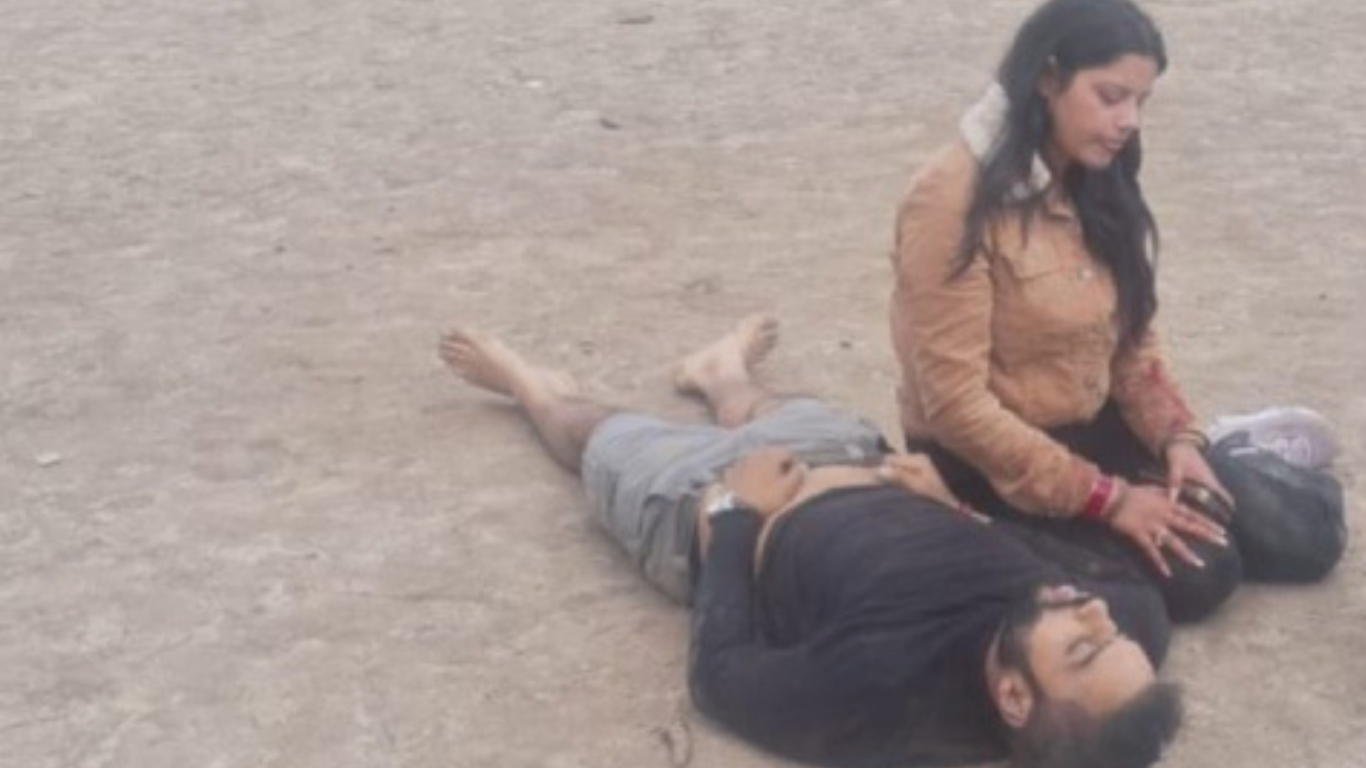The brutal murder of 26 innocent tourists in Pahalgam by Islamic fanatics demands a merciless response. Indian forces must eradicate terrorists and their families to protect Hindus from this unending cycle of violence. The government’s failure to act decisively is a betrayal of every Hindu life lost. It’s time for a reckoning.
Introduction: A Nation in Mourning, A Call for Vengeance
On April 22, 2025, the serene Baisaran meadow in Pahalgam, Jammu and Kashmir, a place known for its breathtaking beauty and tranquility, became a scene of unimaginable horror. Twenty-six tourists—men, women, and possibly children, including Hindus and foreigners—were mercilessly gunned down by Islamic fanatics in a cowardly terror attack. The Resistance Front (TRF), a shadowy proxy of the Pakistan-based Lashkar-e-Taiba, proudly claimed responsibility, revealing their sinister intent to sow chaos, fear, and division in India. This wasn’t just an attack on innocent tourists enjoying a peaceful getaway; it was a calculated assault on India’s sovereignty, its cultural heritage, and the safety of its Hindu majority.
The audacity of these terrorists to strike in broad daylight, in a bustling tourist destination, is a glaring indictment of our security apparatus. Hindus, who form the backbone of this nation, are not livestock to be slaughtered in their own homeland. The blood of these 26 innocents stains the hands of not only the terrorists but also the intelligence agencies that failed to protect them and the government that has allowed such attacks to persist. This massacre demands more than condolences or empty promises—it demands vengeance, a ruthless response that uproots terrorism from its core. Indian forces must target not just the perpetrators but their entire support system, including their families, to ensure such atrocities never happen again. This blog channels the raw anger of a nation betrayed and calls for a response that matches the brutality of the crime.
The Pahalgam Massacre: A Wound on India’s Soul
The Pahalgam attack is not an isolated incident but a chilling reminder of the persistent threat posed by Islamic terrorism in India. Pahalgam, nestled in the heart of Jammu and Kashmir, is a jewel of Indian tourism, attracting thousands of visitors annually with its lush meadows, snow-capped peaks, and serene rivers. It represents the India we cherish—a land of diversity, beauty, and peace. For terrorists to desecrate such a place with bloodshed is an act of war against the very idea of India.
The details of the attack are gut-wrenching. On that fateful day, families were enjoying picnics, couples were capturing memories, and children were playing in the open fields when gunfire erupted. The terrorists, armed with automatic weapons, showed no mercy, mowing down 26 innocent lives without hesitation. The victims, hailing from different walks of life, were united in their tragic fate—targeted simply for being in the wrong place at the wrong time. The TRF’s claim of responsibility, circulated through encrypted channels and later reported on platforms like X, was a brazen taunt, mocking India’s ability to protect its people.
This attack is part of a larger pattern of violence orchestrated by Pakistan-backed terror groups aiming to destabilize Jammu and Kashmir. The TRF, an offshoot of Lashkar-e-Taiba, has been increasingly active, targeting civilians, security forces, and religious minorities to fuel communal tensions and undermine India’s authority in the region. Their ideology, rooted in radical Islam, thrives on hatred and violence, with no regard for human life. The Pahalgam massacre is a stark reminder that these fanatics will stop at nothing to impose their reign of terror.
The question that haunts every Indian is: How could this happen? How could such a high-profile tourist destination, in a region already on high alert, become a killing field? The answer lies in the systemic failures of our intelligence and security apparatus, which have allowed terrorists to operate with impunity. Hindus, who have borne the brunt of such attacks for decades, are seething with anger. We are not powerless, nor are we defenseless. The time for restraint is over. The Pahalgam massacre demands a response so severe that it reverberates across borders and generations.
Enough is Enough: Eradicate Terrorist Families
The terrorists who carried out the Pahalgam attack did not emerge from thin air. They were born, raised, and radicalized within families and communities that either actively supported their actions or turned a blind eye to their descent into extremism. Every terrorist has parents, siblings, spouses, or cousins who know their activities—whether it’s stockpiling weapons, attending radical sermons, or communicating with handlers across the border. These families are not innocent bystanders; they are enablers of terror, complicit in the bloodshed that stains our nation.
India’s approach to counterterrorism has been woefully inadequate. For decades, we’ve relied on arrests, interrogations, and judicial processes, only to see terrorists released on bail, radicalized youth slipping through the cracks, or their families continuing the cycle of violence. This must end. Indian forces should adopt a zero-tolerance policy: kill each and every person in the family of those involved in the Pahalgam attack, regardless of their role—be it planning, funding, providing shelter, or ideological support. This is not about vengeance for vengeance’s sake; it’s about survival, about breaking the backbone of terrorism at its source.
Why target families? Because terrorism is a generational curse. The parents who indoctrinate their children with hatred, the siblings who cheer their brother’s “martyrdom,” the relatives who provide safe houses or financial aid—these are the roots that nourish the tree of terror. By sparing them, we allow the seeds of future attacks to germinate. Israel’s targeted operations against terror networks, which often extend to the immediate support systems of perpetrators, offer a model. While controversial, such measures have disrupted terror ecosystems effectively. India must take a page from this playbook, showing no mercy to those who harbor or breed monsters.
This approach will send a chilling message to anyone contemplating terrorism: your actions will not only cost your life but also the lives of everyone you hold dear. It’s a harsh but necessary deterrent in a war where the enemy hides among civilians, exploiting our restraint. The families of the Pahalgam attackers must face the consequences of their complicity, whether active or passive. Only then can we hope to dismantle the infrastructure of terror that thrives in the shadows.
IB Chief Must Be Held Accountable
The Intelligence Bureau (IB), tasked with preempting such attacks, has failed spectacularly. The Pahalgam massacre was not a spontaneous act but a meticulously planned operation involving reconnaissance, logistics, and coordination. How did the IB miss every warning sign? Why were there no actionable inputs to prevent this tragedy? The IB chief, as the head of India’s premier intelligence agency, must bear the brunt of this failure. Their resignation is the least they owe the nation—better yet, they should be held personally accountable for the 26 lives lost.
Intelligence failures in Jammu and Kashmir are not new, but the scale of this blunder is unforgivable. Pahalgam is not a remote outpost; it’s a high-traffic tourist hub under constant scrutiny due to the region’s volatile history. The IB’s job is to infiltrate terror networks, monitor chatter, and neutralize threats before they materialize. Instead, they allowed a group of heavily armed terrorists to waltz into a crowded meadow and unleash carnage. This is not incompetence; it’s negligence bordering on criminal.
The government must launch a public inquiry into the IB’s lapses, exposing the gaps in intelligence gathering, coordination, and execution. The chief’s removal is a starting point, but systemic reforms are needed to ensure such failures are not repeated. Hindus deserve answers: Where was the intelligence? Why were security measures so lax? Why are we still reacting to attacks instead of preventing them? The IB’s inertia is costing lives, and it’s time for a reckoning.
A Direct Action Day: Annihilate Suspected Terrorists and Supporters
The Pahalgam attack calls for a radical shift in India’s counterterrorism strategy. We need a Direct Action Day in Kashmir—a full-scale, no-holds-barred operation where security forces are given a free hand to hunt down every suspected terrorist and their supporters. This is not about rounding up suspects for interrogation or building case files for courts. It’s about immediate, decisive action: identify, locate, and eliminate anyone with even a tangential connection to terrorism.
What does this look like? Special forces, backed by the army and paramilitary units, should sweep through known terror hotspots in Kashmir, targeting individuals on watchlists, their associates, and anyone suspected of aiding or abetting terrorism. No arrests, no trials—just swift justice. If a suspect is found harboring weapons, spreading jihadi propaganda, or receiving funds from across the border, they should be neutralized on the spot. Their supporters—whether they provide logistical help, ideological cover, or moral encouragement—must face the same fate.
This approach draws inspiration from historical moments of decisive action, like the 1946 Direct Action Day, which, while tragic, demonstrated the power of overwhelming force in asserting dominance. In today’s context, it means empowering our forces to act without bureaucratic red tape or fear of backlash. The National Security Guard (NSG), Central Reserve Police Force (CRPF), and Jammu and Kashmir Police should be unleashed with clear orders: eradicate the terror ecosystem, root and branch.
Critics may call this draconian, but the alternative—endless attacks, grieving families, and a nation on edge—is far worse. Kashmir cannot remain a safe haven for terrorists who exploit civilian cover to wage war on India. Hindus are not collateral damage in this conflict; we are the primary targets. A Direct Action Day will restore fear in the hearts of those who dare to challenge India’s resolve.
Government’s Failure: Protect Hindus or Admit Defeat
The Pahalgam massacre lays bare the government’s inability to protect its citizens, particularly Hindus, from the scourge of Islamic terrorism. For years, we’ve heard promises of “zero tolerance” and “surgical strikes,” but the reality is stark: terrorists continue to strike with impunity, and Hindus continue to die. If the government cannot ensure our safety, it must admit its failure and face the consequences.
The state’s primary duty is to protect its people. When it fails, as it did in Pahalgam, it loses its legitimacy. The government has the resources—elite forces, advanced technology, and international support—to crush terrorism, yet it falters. Why? Is it bureaucratic inefficiency, political cowardice, or a misplaced fear of international criticism? Whatever the reason, it’s unacceptable. Hindus will not be sacrificial lambs in a game of geopolitical chess.
The government has two options: act decisively or step aside. Deploy the army in full force, empower intelligence agencies to infiltrate terror networks, and give security forces the autonomy to eliminate threats. If the state cannot do this, it must publicly declare its inability to protect Hindus, paving the way for the people to take matters into their own hands. This is not a call for vigilantism but a demand for accountability. The government must prove it stands with its people, or it risks losing their trust forever.
A Call to Arms: We Must Rise
The Pahalgam attack is a clarion call for every Hindu to rise in defense of our nation and our faith. We are not weak, nor are we helpless. We are the descendants of warriors who fought for dharma against insurmountable odds. The blood of our ancestors courses through our veins, and it’s time to channel that strength into action.
Hindus must unite, not just in grief but in fury. Demand justice from the government, hold the IB accountable, and support our security forces in their mission to eradicate terrorism. Use every platform—X, public forums, protests—to amplify our voice. Let the world know that Hindus will not be victims in our own country. We will not allow Islamic fanatics to dictate our future.
This is a war, not just against terrorists but against an ideology that seeks to annihilate us. The Pahalgam massacre is a turning point—a moment to shed our complacency and fight back with every ounce of our resolve. Pressure the government to act, honor the memory of the 26 victims by ensuring their deaths were not in vain, and stand tall as a community that refuses to be broken.
Conclusion: A Nation at War, A People Unbowed
The Pahalgam attack is a wound that will not heal with time. It’s a scar on India’s soul, a reminder of the price we pay for inaction. But it’s also an opportunity—a chance to rewrite the rules of engagement, to show the world that India will not tolerate terrorism on its soil. The solution is clear: eliminate terrorists and their families, hold the IB accountable, launch a Direct Action Day, and demand that the government protect Hindus or admit its failure.
This is not about hatred; it’s about survival. Islamic fanatics have declared war on India, and we must respond with a ferocity that leaves no doubt about our resolve. Let the Pahalgam massacre be the last straw, the spark that ignites a fire in every Hindu heart. We are not chickens or goats to be slaughtered. We are a nation of warriors, and we will fight until every terrorist and their enablers are wiped from the face of the earth.
Note: We respect all religions and we are not against any religion, but the fringe elements of a particular religion who are extremely radicalized are disturbing us; they are causing our blood pressure to go up, whether it’s Bengal or Kashmir, they are causing immense damage to our souls.
India, rise up. Crush the terrorists. Protect your people. Jai Hind.




